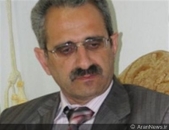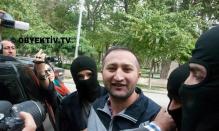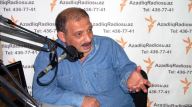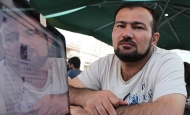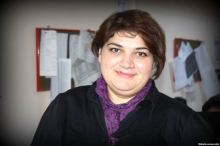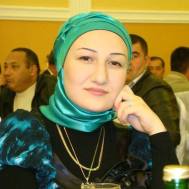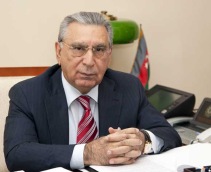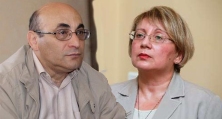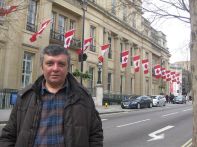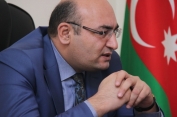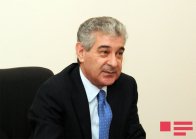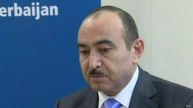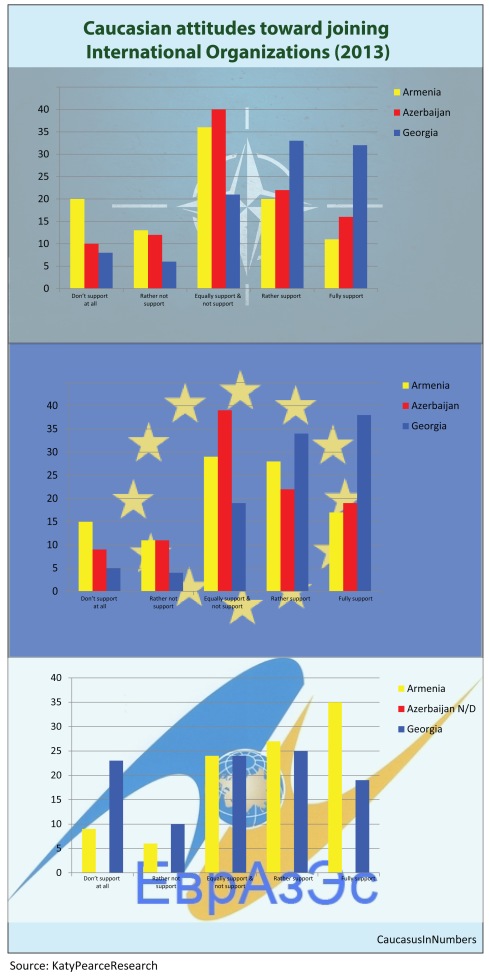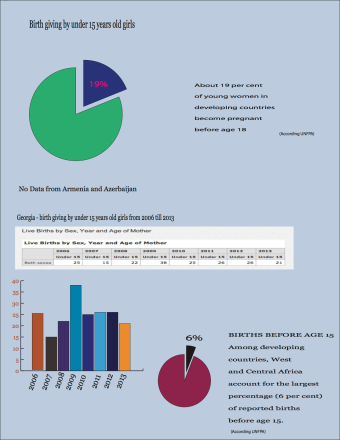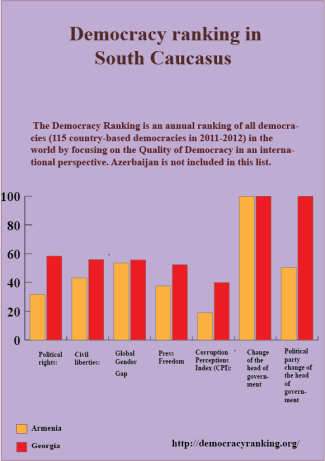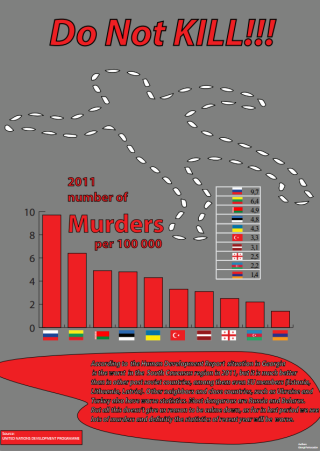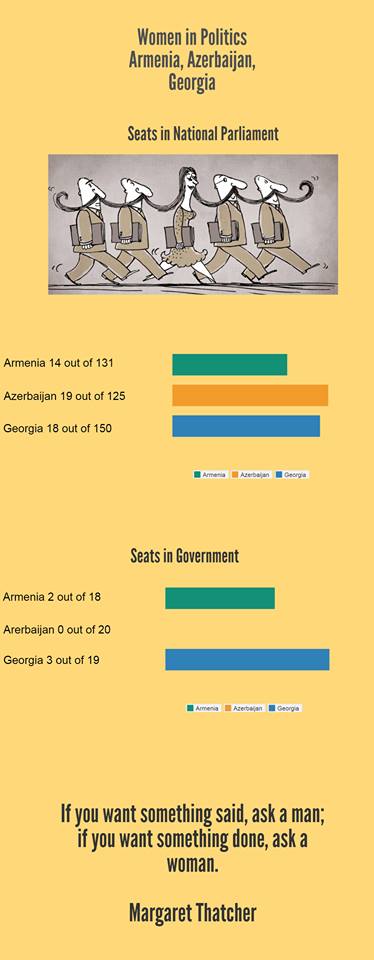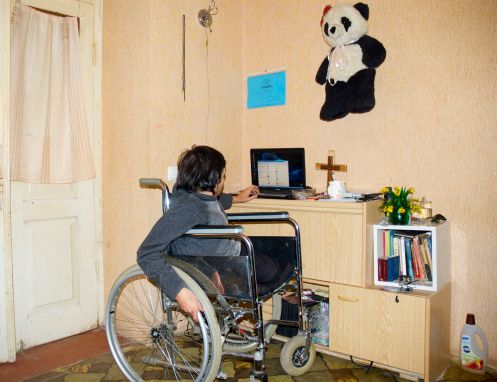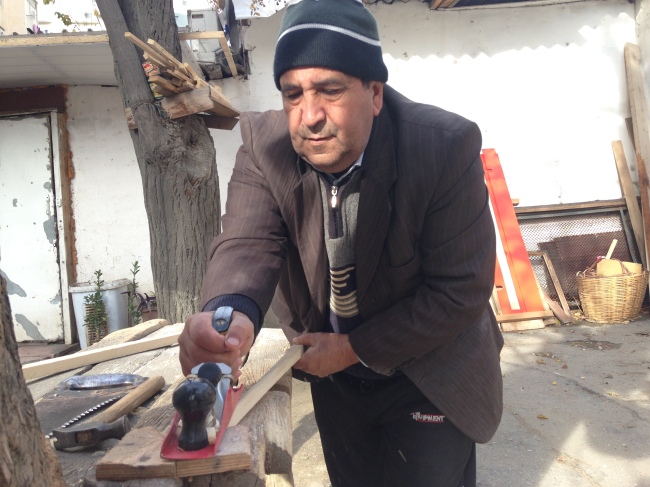By Gunel Safarova
Azerbaijan always introduces itself as a democratic republic. But events which happened in last 3 years showed that there is no more democracy in this country.
During last 3 years Azerbaijan government closed many media outlets and international NGOs and arrested independent journalists who were investigating social and political issues in Azerbaijan.
Journalists like Seymur Hazi, Khadija Ismailova, Hilal Mammedov, Parviz hashimli, Rauf Mirqadirov were imprisioned.
 Media Outlets and NGO’s such as Radio Free Europe Azerbaijani bureau, Meydan Tv Baku Bureau, Internews, IREX Azerbaijan, news sites, mediaforum, civilforum were closed. Many journalists left the country, many of them still trying to survive in this pressure.
Media Outlets and NGO’s such as Radio Free Europe Azerbaijani bureau, Meydan Tv Baku Bureau, Internews, IREX Azerbaijan, news sites, mediaforum, civilforum were closed. Many journalists left the country, many of them still trying to survive in this pressure.
International organizations, such as Helsinki Committee for Human Rights, Transparency International, Amnesty International, Human rights Watch and others noted the presence of political prisoners in Azerbaijan and demand form Azerbaijani government to release them immediately.
Azerbaijan in the fifth place at the 2015 list of 10 Most Censored Countries, according to Committee to Protect Journalists’s (CPJ) annual publication.
Now after these actions independent journalism is under danger, say experts.
Azerbaijan has a big history in journalism. Our first newspaper was born in 19 century by Hasan bay Zerdabi. In 1875 he founded Akinchi, the first independent newspaper to appear in Azerbaijani language in the Russian Empire. From that time we had many newspapers like “Ziya”, “Keshkul”, “Fuyuzat”, “Kaspi”, “Sharqi-rus”, “Molla Nasreddin” and etc.
During Soviet period we had many newspapers both in Russian and Azerbaijan language, but none of them was independent, because of Soviet Union repression.
Azerbaijan became independent in 1991. But new media was creating from 1988, during maydan protesting we had many “samizdat” newspapers. But after independence journalism was very popular, so many radio, TV and newspapers have been appeared.
But Azerbaijan had law about censorship. In 1998 the censorship on press in Azerbaijan was abolished.
But after some years “the black days of Azerbaijan journalism” began. Many journalists have been insulted, or beaten during their job. Journalist Idrak Abbasov who now is living in Norway remembers that time, he says he was beaten many times and even his children had danger with their lives. But no one never was punished because if him.
Last 2 years became a nightmare for journalist and civil rights defenders in Azerbaijan.
“Azerbaijan is experiencing one of its worst human rights crises in over two decades since its independence. In a relentless and systematic crackdown, the government is punishing its critics through bogus prosecutions and restrictive regulations limiting space for independent groups. In the past two years, the authorities have detained and brought unfounded criminal charges against dozens of human rights defenders, journalists, bloggers, and activists, prompting others to flee the country or go into hiding” says expert on human rights issues in South Caucasus Giorgi Gogia.
In September 2013 head editor of minority’s “Tolıshi sado” Hilal Məmmədov was imprisioned for 5 years for treason and inciting national hatred.
In September 2013 correspondent of newspaper “Bizim Yol” and editor of news site moderator.az Pərviz Hashimli was arrested. He got 8 years in prison for keeping illegal guns.
In march 2014 Rauf Mirkadirov was arrested in part due to his Armenian history, having been pictured at conferences in Yerevan. He was based in Turkey, reporting for the Azerbaijani newspaper Zerkalo, and was an active member in the movement to improve Azerbaijani-Armenian relations. Government accuses him in treason.
In 2014 Seymur Hezi, the leading columnist of the opposition newspaper “Azadlig” (Freedom) and the anchor of the Turkey-based independent TV Channel “Azerbaijan Saati” and opposition party Azerbaijani Popular Front Party member in Azerbaijan, has been charged with aggravated disorderly conduct, in a case his lawyer says is fabricated. Hezi, who writes for the Azadliq newspaper and presents Azerbaijan Hour, a program carried on a Turkish TV channel, was detained by police on August 29. The following day the court ordered him to be held in custody for two months pending trial. He was imprisoned for 5 years in 2015. In 2011 he was kidnapped, tortured, and sternly warned not to continue working at Azadliq. In August 2014, Mr. Hezi was attacked on the street, and was arrested after defending himself. His attacker received six months in prison; Seymour Hezi was sentenced in January to five years for hooliganism.
On September 30, 2014 U.S. nongovernmental organization IREX stopped its activity in Azerbaijan. Earlier this year its bank assets were frozen following a “criminal investigation” launched by the government against several Azerbaijani and international NGOs.
U.S. State Department official said in a statement to RFE/RL that government’s decision will hurt democracy-promotion efforts in the country. “We have greatly valued IREX’s efforts to support independent, professional media and to facilitate people-to-people ties.”
IREX Azerbaijan worked since january 1998 till 2014.
Alasgar Ahmedoglu who was working for IREX says, local NGOS, political parties had more effective public control than media. During the Eurovision 2012- “sing for democracy” was very effective. Therefore, the legislation was tightened and the NGO sector in the next financial sources, grants suspended. Criminal cases were opened against local NGO’s accounts. Government didn’t like the power of NGO’s and international organizations.
Ahmadoglu syas, there were 51 workers in IREX when it forced closing. Now he works as independent lawyer.
On December 5, the Azeri Court of Appeal ordered RFE/RL journalist Khadija Ismayilova held in pre-trial detention for two months over allegations of an attempted pressure on a man who commit a suicide. Ex RFR/RL worker Tural Mustafaev claimed that he tried to commit suicide. But it wasn’t successful. It happened one day after Head of the Presidential Administration of Azerbaijan Republic Ramiz Mehdiyev mentioned her name in his 60 page article, and accused her in a slander and blackmail of well- known people, and with it delighted her “foreign protectors”. Khadija is in prison now; she might be getting 12 years imprisonment.
On December 9, 2014 Baku office of internet television based in Berlin Meydan TV was closed. The directory of Meydan Tv said they did it for the security of their workers.
Aytan Farhadova is working as a journalist from 2003. Now she is working as a independent investigative journalist and writing for Meydan Tv Berlin based media outlet. She says, it is very difficult to be journalist without taking any side in Azerbaijan.
“It is easy to be insulted while working as a journalist, not only by government, even by ordinary people. Journalists in this country describes as a rebels, because almost everyone’s mind is ruling from one side. Journalists who are writing about corruption and conflict resolution in country can be called traitor in any time easily. If someone wants to be honest journalist he or she must play with fire.
Aytan Farhadova doesn’t like journalism conditions in Azerbaijan at all. But she says, it is possible to stay independent.
“But it is not easy; you need to have big and reliable money support. And sometimes it is a really big problem. For example, bank accounts of workers of Radio Free Europe in Azerbaijan have been frozen. It shows government wants to close all connections of independent journalists from international organizations. And these connections are illegal. But I continue to work. And we know that in any time our doors will be knocking”.
 On December 27, 2014 Azerbaijan police raided the Baku bureau of U.S.-government-funded Radio Free Europe early Friday, shutting down the office and ordering its journalists to stop working. RFE chief editor Nenad Pejic called the raid “a flagrant violation of every international commitment and standard Azerbaijan has pledged to uphold.”
On December 27, 2014 Azerbaijan police raided the Baku bureau of U.S.-government-funded Radio Free Europe early Friday, shutting down the office and ordering its journalists to stop working. RFE chief editor Nenad Pejic called the raid “a flagrant violation of every international commitment and standard Azerbaijan has pledged to uphold.”
Jeff Shell, chairman of the U.S. Broadcasting Board of Governors, which funds RFE/RL, called on the Azeri government to allow the bureau to immediately reopen. “This unwarranted action is an escalation of the Azeri government’s abusive attempt to intimidate independent journalists and repress free media,” Shell said.
But AZERI service of RFE/RL is still closed.
Gulnur Kazimova who was region correspondent of AZERI service of RFE/RL says, she faced many problems because of her profession.
“Police broke my camera numerous times. I and my husband were called to police many times. They didn’t allow me to enter to social events. My brother was fired from work because of me. I was threatened for not writing articles. These all was done by local executive power members and police”.
Kazimova now lives in Tbilisi, she says, it is because she wants to protect her family. She has been charged in case because of her article.
The Azerbaijani government escalated its repression against its critics in 2014, with a dramatic deterioration in its already poor rights record, Human Rights Watch said in its World Report 2015.
“Azerbaijani authorities arrested or convicted dozens of people during the year on bogus charges, including leading human rights defenders and journalists, froze the bank accounts of independent civic groups and their leaders, denied them access to funds by refusing to register foreign grants, and adopted legislation that further limited the work of independent groups. The crackdown continued even as Azerbaijan held the rotating chairmanship of the Committee of Ministers of the Council of Europe, Europe’s foremost human rights body. The Azerbaijani government should free everyone held on politically motivated charges and end its crackdown”, the report says.
Human Rights Watch also called Germany’s chancellor Angela Merkel to urge President Ilham Aliyev of Azerbaijan to free leading human rights defenders, journalists, and other government critics jailed unjustly in Azerbaijan.
Amnesty international says in its 2015 report on human rights that, at least six prominent human rights defenders were imprisoned and leading human rights organizations forced to shut down or cease their activities. Independent journalists continued to face harassment, violence and trumped-up criminal charges. Freedom of assembly remained restricted. There were frequent reports of torture and other ill-treatment.
Committee to Protect Journalists included Azerbaijan to its 10 censored courtiers list:
“In Azerbaijan (fifth most censored), where there is little independent traditional media, criminal defamation laws have been extended to social media and carry a six-month prison sentence. Iran, the seventh most censored country, has one of the toughest Internet censorship regimes worldwide, with millions of websites blocked; it is also the second worst jailer of journalists, with 30 behind bars. Authorities there are suspected of setting up fake versions of popular sites and search engines as part of surveillance techniques. Government harassment is a tactic used in at least five of the most censored countries, including Azerbaijan, where offices have been raided, advertisers threatened, and retaliatory charges such as drug possession levied against journalists”, CPJ says.
Recently , is a recently formed coalition The Sport and Rights Alliance including Amnesty International, Human Rights Watch, FIFPro – World Players’ Union, Football Supporters Europe, Supporters Direct Europe, Terre des Hommes, and Transparency International Germanysent letter to Patrick Hickey, president of the European Olympic Committees, the alliance urged the European Olympic Committees to speak out against Azerbaijan’s harsh crackdown against government critics and worsening environment for media freedom, which are at odds with key principles of the Olympic Charter that the European Games are meant to uphold.
“The Azerbaijani government’s detention and imprisonment of leading journalists and human rights activists and its ongoing harassment of news outlets, media organizations, human rights groups, and other independent groups and activists cannot be reconciled with the Olympic Charter’s principles on press freedom and human dignity”, the alliance said.
Now the relations between the West and Russia have intensified. It can even be regarded as the second stage of the Cold War. And Russia is very interested in the attraction of Azerbaijan in the sphere of influence. Recently, there are changes in foreign policy of Azerbaijan. It became more manifest pro Russian moments.
Often in Azerbaijan sounds anti – Western statements. The head of the Azerbaijani Presidential Administration Ramiz Mehdiyev writes in his article, which consists of 62 pages:
“Most dangerous factor for the system of international relations, to promote different political ideas under the guise of democracy. In today’s post-bipolar world, which actually turned into a unipolar world, US policy can be described with these words. And also, it clearly appears in the views of Barack Obama. Under the slogan “the world”, he is actively promoting the national interests of the United States. For humane considerations, as an extension of democracy is worth US real political goals. ”
Despite an international outcry, President Ilham Aliev is unapologetic about his treatment of political prisoners. In a June 2014 speech at the Council of Europe, Mr. Aliev flatly stated, “[T]here are no political prisoners in Azerbaijan.” Yet despite the apparent absence of any political prisoners in his country, Mr. Aliev has made it clear that he is intimately aware of the particulars of the arrest and detention of Leyla Yunus. Given Mr. Aliev’s comments and the memos emanating from high-level operatives in his regime, it is evident that he is not merely complicit in these extrajudicial arrests; more deliberately, President Aliev is spearheading a strategy to silence all opposition discourse in Azerbaijan.
According to journalist and political analyst Shahin Rzayev beginning of such period, you can link the events in Ukraine, or rather the beginning of the movement in the Maidan. Azerbaijani government began to consider the possibility of a repetition of these events here, so they have to take preventive methods.
“We had to prove their loyalty to Russia. And that affected all organizations that have been associated with America. Closing IREX, Inter news, Radio Liberty and also 12 American organizations was a gesture toward Russia, “says the analyst.
Shahin Rzayevv is editor of IWPR in Azerbaijan. He was working as a journalist from middle of 1990’s. He is collaborating with IWPR from 1999. He is writing mostly on conflict resolution. He thinks to be a journalist in Azerbaijan is very difficult. He says, it is almost impossible to be an independent journalist when you don’t have free market go advertising.
“They call journalism 4th power. But in Azerbaijan we don’t even have 2nd power. We have 1st power, which is the last one. Most of journalist has become a tool for their jobs. They cannot affect society. Unfortunately because of this situation many talented journalists left this profession or left the country. If someone wants to stay independent, they should work with little amount of money. So it is difficult to be a journalist in a place with no freedom of press”.
Mr. Rzayev talks about pressure to IWPR Azerbaijan representation. “There were three articles against us. But then they decided that we are not so dangerous for them right now, because we were not investigating president’s earnings”.
MP Iqbal Aghazadeh says that America demands that Azerbaijan has democracy and freedom. “USA does it with the help of NGOs and civil society. And the Azerbaijani government resists this. ”
But Azerbaijani government refuses all above sayings.
Deputy Chairman of new Azerbaijan Party Ali Ahmadov said that, “problem of political prisoners” is method of pressure on Azerbaijan by some European circles
Social and political affairs of the Azerbaijani presidential aide Ali Hasanov said that, Azerbaijan operates in accordance with the state rules and there are no political prisoners in Azerbaijan.
“Some international NGOs claim that, there is no freedom of press in Azerbaijan. But Azerbaijan is a member of the Council of Europe, for about 15 years and is under the jurisdiction of the European Court of Justice. Someone who is doesn’t agree with Azerbaijan’s decision may appeal to European Court judgments”, he says.
Sources:
- http://www.amnesty.org/en/region/Azerbaijan
- http://www.theguardian.com/commentisfree/2014/nov/03/azerbaijan-human-rights-uk-tory-echr
- http://www.rferl.org/content/azerbaijan-ngo-irex-us-blow/26632381.html
- http://www.osce.org/baku/42386
- http://www.wmd.org/alerts/activists-imprisoned-ngo-closed-down-azerbaijan
- http://www.rferl.org/content/azerbaijan-democracy-university/24954500.html
- http://www.voanews.com/content/radio-free-europe-bureau-raided-by-azerbaijan-authorities/2574415.html
- http://www.azadliq.org/content/article/26724360.html
- http://azertag.az/fr/xeber/Ikili_standartlarin_dunya_nizami_ve_muasir_Azerbaycan-815301?device=Desktop
- http://www.hrw.org/news/2015/04/07/azerbaijan-free-prisoners-baku-games
- http://ajb.az/site/KIV_haqqinda_qanun.pdf
- http://www.hrw.org/news/2015/01/29/azerbaijan-escalated-crackdown-critics
- https://cpj.org/2015/04/10-most-censored-countries.php
- http://www.hrw.org/news/2015/05/08/dispatches-let-azerbaijan-journalist-go-free
- http://blog.amnestyusa.org/europe/azerbaijan-brutal-crackdown-against-journalists-continues/
- http://www.yeniazerbaycan.com/Axtarish_e8568_az.html
- http://www.eurasianet.org/node/68297
It is time to make a choice for Post-Soviet South Caucasus countries – Armenia, Azerbaijan and Georgia to be part of Europe or stay in the shadow of Russia, and be a member of the Eurasian Economic Union. Recent research done by Katy Pearce, researcher in South Caucasus, shows the “willing” of people to be part of EU or EEU.
Georgia has already signed the European Assosiation document, Armenia became the member of EEU, and only Azerbaijan is trying to keep neutral policy between two enourmous forces. However, if to look deeply it is clear how Azerbaijan is changing the international policy’s direction toward Russia. Let’s see the result of Aliyev’s policy later, but now we will try to show the statistic of Caucasian toward joining EU.
‘’The Women in Politics’’ Map 2014 is launched by the Inter-Parliamentary Union (IPU) and UN Women.
Armenia is on 115 (10.7 %), Azerbaijan on (15.6 %) and Georgia on 109 (12 %) place.
Our counties are pretty close to each other. In our society the role of women is not much associated with politics. International maps and national statistics shows the real image of women participation in politics.
In this article we concentrate only how many women we have in government and Parliament in Armenia, Azerbaijan and Georgia.
UN Women´s Deputy Executive Director, John Hendra says, “This map shows the value of having data, of being able to measure and track women´s political participation over time. It´s a great tool for benchmarking progress and for ensuring accountability.”
Our countries percentage talk about the situation.
While Armenians, Azerbaijanis and Georgians are 100% sure that Pakhlava, Barbecue and Khash is their national food ….
Hasmik Hayrapetyan_food in Caucasus-2 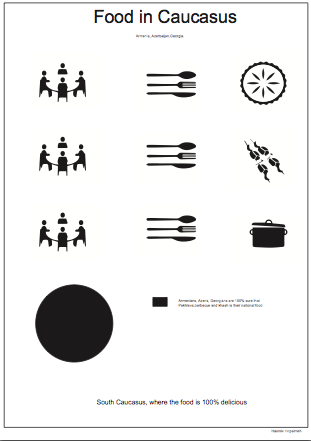
By Hasmik Hripsimeh
Gurjaani is a region of Kakheti, Georgia, where Hand in Hand non profit organisations, established in 2010 in Tbilisi, Georgia, providing the houses for people with mental and physical disabilities. The main mission is to create worthy living conditions for people with disabilities and help them to socialise into society.
Dmitri Burjanadze, 26, is a person with disability has been living in this house for almost three months.
This small square room contains his whole life. There are two beds and chairs, one computer and one table where the different types of games are being located: backgammon, cards and domino. This room belongs to Dmitri and his friend, Timur.
“His body is in growth-retarted, and this is his main problem. In other things he is very smart and clever,” says Marina Modebadze, the director in “Hand in Hand” organisation.
Before his coming to this house, Dmitri had been living in other house in Dusheti, Georgia.
“There was my love, but there was no rest. We were fighting a lot.”
A carpenter, Jalilov Jalil, 71, manufactures kitchen belongings not only for sale but also for his family members.
“I served in Russia. After time in the army, I got into the construction department and lied about being a carpenter,” says Jalilov. “The reason was because my commander told me to choose the carpenter profession. He told me that if I choose it, I could stay there and work.”
A 71-year-old man who came to Baku from Shamkir in 1965, still looks like a middle-aged man. There are no wrinkles on his face and even no sign of gray hairs under his small-sized knitted cap. Three gold teeth appear periodically while he speaks. Old shabby trousers, a shirt worn under a pullover, a coat in strips, and a cap on his head: all these tell us that he fully dedicates himself to work.

